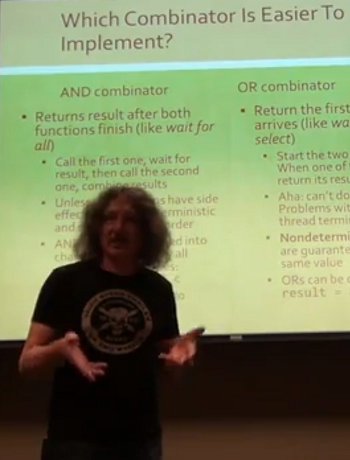Quick Q: How do I use std::tie and std::ignore? -- StackOverflow
How well do you know tie and ignore, especially to use the C++11 multiple return value idiom?
Please explain this code that uses std::ignore
I'm reading the documentation on
std::ignorefrom cppreference. I find it quite hard to grasp the true purpose of this object, and the example code doesn't do it much justice. For example, in the below code, how and why isinsertedset to true? It doesn't make much sense to me.#include <iostream> #include <string> #include <set> #include <tuple> int main() { std::set<std::string> set_of_str; bool inserted; std::tie(std::ignore, inserted) = set_of_str.insert("Test"); if (inserted) { std::cout << "Value was inserted sucessfully\n"; } }If someone can explain the code to me, it would be appreciated. Thanks.

 If you're familiar with functional language styles and you want an advanced look at how your favorite functional styles are supported in modern C++, with a dash of Haskell, check out these three videos by Bartosz Milewski:
If you're familiar with functional language styles and you want an advanced look at how your favorite functional styles are supported in modern C++, with a dash of Haskell, check out these three videos by Bartosz Milewski: